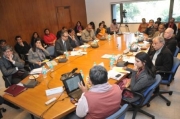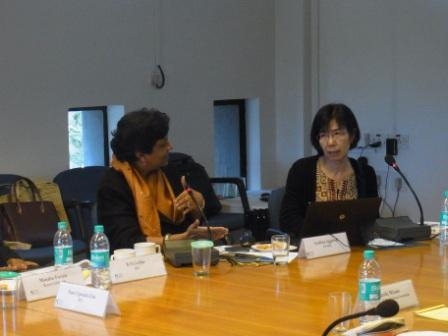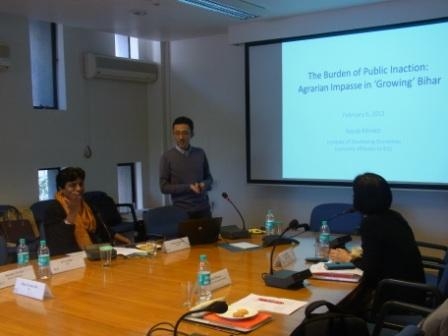Can Panchayats Make Services Work for Poor People in Rural India?
07 Feb 2013
Past Event

The National Council of Applied Economic Research (NCAER) organized a roundtable discussion on “Can Panchyats Make Services Work for Poor People in Rural India?” Dr Hari Nagarajan, Senior Fellow, NCAER presented findings from his forthcoming book “Decentralization and Empowerment for Rural Development: The Case of India”, jointly authored with Dr Hans Biswanger-, and Dr SS Meenakshisundaram. Dr David Malone, President, IDRC, Canada and Ms Yamini Aiyar, Director, Accountability Initiative and Senior Research Fellow, CPR were invited as the main discussants. The Roundtable also saw an active participation from experts on Panchayati Raj.
Dr Nagarajan spoke about panchayats’ role in delivering services like management of water, health, education and the pathologies related to service delivery. In his presentation he made the observation that the India’s model of decentralization is different from those prevailing in other countries of the world. He remarked that Panchayati Raj Institutions are having increasingly positive impacts on services and there is a need to devolve more powers to them. He emphasized that Gram Sabhas are an important tool for governance related services and must be strengthened. Presenting inferences based on the analysis of NCAER’s nationally representative Additional Rural Incomes Survey (ARIS) and Rural Economic Demographic Survey (REDS) data, he remarked that reservations for women help in bringing about improvements in service delivery and policies should persist in furthering women’s empowerment. Inheritance of land by women goes a long way in changing intra-household decision dynamics and has a positive impact on household incomes.
Dr David Malone shared his experiences about service delivery to Native Canadians living in remote location, difficult terrain and hostile climatic conditions. He also spoke about the need to have proper accountability mechanisms in place for the utilization of money given to local governments.
Ms Yamini Aiyar noted that in India the issue is not whether decentralization is good or bad, but that centralized administration has clearly failed. She said that the present analysis offers an opportunity to reorganize current institutions in a bottom-up manner. She observed that panchayats need to be looked at not merely as institutions for service delivery but rather as mechanisms of governance. Commenting on the 3Fs- Funds, Functions and Functionaries formula of decentralization, she noted that along with the devolution of money, functional responsibilities and functionaries should also be devolved.










